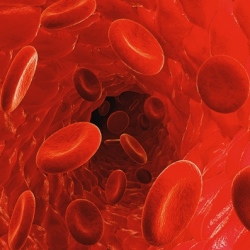
For the first time, a team of experts from Newcastle University’s Institute for Ageing and Keio University School of Medicine, Tokyo, explored which biological and pathological processes may be the most important for successful ageing after 100 years of age.
They identified that to live past the age of 100 you must keep inflammation down in the body and telomeres long, which are the part of human cells that affect how our cells age. Severe inflammation is part of many diseases in the old, such as diabetes or diseases attacking the bones or the body’s joints, and chronic inflammation can develop from any of them.
Professor Thomas von Zglinicki, from Newcastle University’s Institute for Ageing, led the UK part of the study. He said: "Centenarians and supercentenarians are different ; put simply, they age slower. They can ward off diseases for much longer than the general population."
In groups of people aged 105 and over (semi-supercentenarians), those 100 to 104 (centenarians), those nearly 100 and their offspring, the team measured a number of health markers which they believe contribute towards successful ageing, including blood cell numbers, metabolism, liver and kidney function, inflammation and telomere length.
Scientists expected to see a continuous shortening of telomeres with age, however what they found was that the children of centenarians, who have a good chance of becoming centenarians themselves, maintained their telomeres at a ‘youthful’ level corresponding to about 60 years of age even when they became 80 or older.
Professor Zglinicki (pictured) said: "Our data reveals that once you’re really old, telomere length does not predict further successful ageing. However, it does show that those who have a good chance to become centenarians and those older than 100 maintain their telomeres better than the general population, which suggests that keeping telomeres long may be necessary or at least helpful to reach extreme old age."
Centenarian offspring maintained lower levels of markers for chronic inflammation. These levels increased in everybody with age including centenarians and older, but those who were successful in keeping them low had the best chance to maintain good cognition, independence and stay alive for longer.
Professor Zglinicki added: "It has long been known that chronic inflammation is associated with the ageing process in younger, more ‘normal’ populations, but it’s only very recently we could mechanistically prove that inflammation actually causes accelerated ageing in mice.
"This study, showing for the first time that inflammation levels predict successful ageing even in the extreme old, makes a strong case to assume that chronic inflammation drives human ageing too.
"Our study showed that over a wide age range, including unprecedentedly large numbers of the extremely old, inflammation is an important driver of ageing that might be something we can develop a pharmacological treatment for.
"Accordingly, designing novel, safe anti-inflammatory or immune-modulating medication has major potential to improve healthy lifespan."
